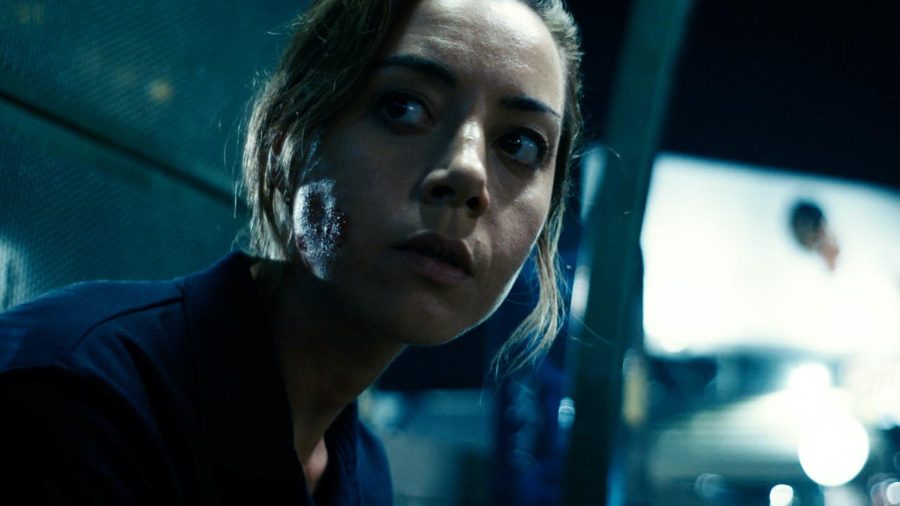Sundance: ‘Emily the Criminal’
January 30, 2022
Director and screenwriter John Patton Ford has made his return to Sundance with the premiere of “Emily the Criminal”. With actor and producer Aubrey Plaza joining him at the helm, the film is a suspenseful and almost snarky thriller about a woman drowning in student debt who gets involved in credit card fraud.
Taking Matters Into Her Own Hands
Emily, played by Plaza, leads a mundane life at the top of the film — working a temp job for a catering company, living with two roommates that blend into the wallpaper and struggling to pay off her mountain of student debt from art school. Co-worker Javier (Bernardo Badillo) introduces Emily to an underground “dummy shopping” scheme, where she starts purchasing luxury items under a stolen name and credit card. As she buys into the high of getting away with the crime and the financial freedom the gigs provide, she finds herself partnering with leader Youcef (Theo Rossi) to learn the ropes.
“Emily the Criminal” is thrilling to watch as Patton Ford shapes moments of intense action, from a car chase to a mugging. Throughout the film, Emily’s initial anxiety about pulling off something illegal transforms into power rounded out with a maniacal sense of fight. Following a physical attack from a job that went awry, Emily steels herself and drills further into her commitment to the scheme, saying, “Motherf—s will keep taking from you until you make the rules.”
No one is better suited for the role of Emily than Plaza. The ferocity and intensity she exudes in walking away from harrowing criminal encounters coupled with the snarky, dry wit that any “Parks and Recreation” fan will recognize makes Emily such a compelling character.
Thrilling Without Traditional Villains
“Emily the Criminal” is no stranger to violence or intimidation from its shadier characters, but the real villains of the story are more covert. In the first scene, Emily is at a job interview, not actually interested in the position but looking for some financial stability. When the company assures her they haven’t done a background check, she lies about her criminal record. But they have, and dismiss her due to her record of aggravated assault.
By the end of the film, Emily is interviewing for a design position that her friend Liz (Megalyn Echikunwoke) arranged. Finding out it’s actually an unpaid internship position before a chance to be vetted for a paid role, she’s so frustrated she storms out. Again, Patton Ford doesn’t shy away from her real rage, as Emily repeats a sentiment expressed early in the film, “If you want to tell me what to do, put me on the f— payroll.” Patton Ford’s script connects the reality of systematic exploitation and lack of a living wage to Emily’s push deeper and deeper into the dangerous, yet lucrative, life of fraud.
Becoming That “Something”
Oddly enough, this resignation towards employment is where Patton Ford’s characters find a sense of hope, somewhat adjacent to the fabled American Dream. As Emily and Youcef partner on jobs more frequently and grow closer, he shares his dream of purchasing an apartment building and renovating it. He introduces Emily to his mother who, without knowing the extent of his criminal scheme, takes pride in her son’s entrepreneurial spirit. She tells Emily, “You will figure out your gift … Maybe, Emily the teacher. Emily the mother. Emily the something.”
Here, we see that the crux of “Emily the Criminal” is not desperation, but empowerment. Sure, Emily starts the film down on her luck, searching for any way to get on top of the debt that’s running her life, but by the end we see a strong picture of a woman who’s learned to navigate even the most terrifying of situations, becoming “Emily the something” under nobody’s rule but her own.








